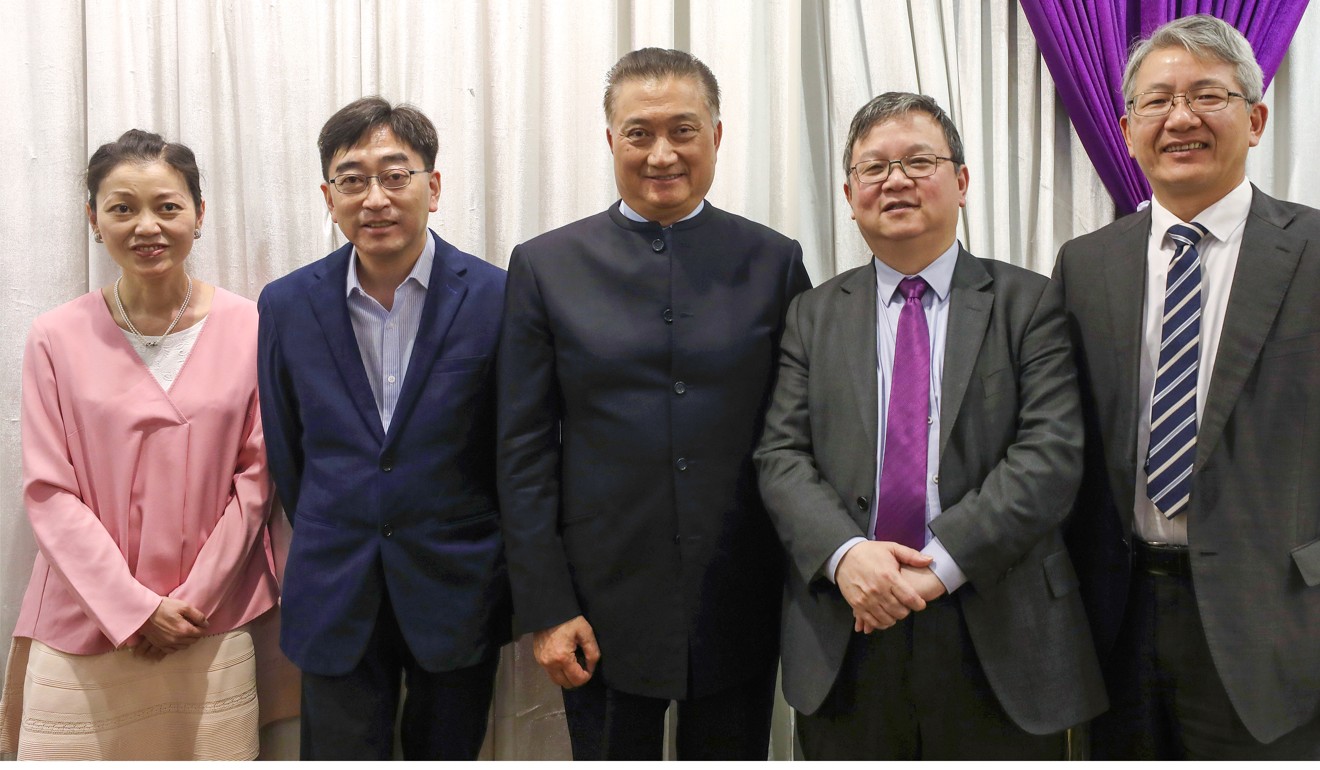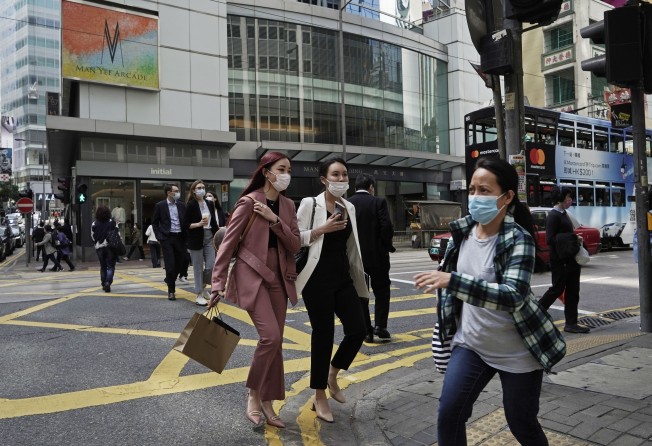
Coronavirus: Hong Kong group hands out masks donated by Shenzhen government but recipients required to provide contact details online
- Hong Kong Community Anti-Coronavirus Link says addresses and phone numbers are being collected so masks can be delivered to recipients
- Group has already handed out 2.3 million masks either through 400 distribution spots across the city or via its online platform

A newly formed pro-establishment group has started handing out 1 million masks that the Shenzhen municipal government donated to Hong Kong to help tackle the coronavirus outbreak amid shortages locally, but recipients need to provide personal data to receive them.
Opposition parties expressed concern that addresses and phone numbers being collected would be passed on to authorities in mainland China or pro-establishment parties to use in the lead-up to legislative elections in September, but the group, Hong Kong Community Anti-Coronavirus Link, on Wednesday insisted the information was simply for delivering the masks.
Link convenor Bunny Chan Chung-bun, a Hong Kong deputy to the National People’s Congress, said that since its inception in early February the group had handed out 2.3 million masks to the community either through 400 distribution spots across the city or its online platform.

Pro-establishment figures such as former health minister Dr Ko Wing-man, academics and medical experts set up the group.
It began to hand out the 1 million surgical masks donated by the Shenzhen government last week to those who had registered through its online platform, which required them to reveal their contact numbers and addresses.
Once a person registered, a pack of five surgical masks made in mainland factories would be delivered to their home in person, Chan said, adding that the group had mobilised 5,300 members of residents’ associations or pro-establishment groups for the task.
He said the arrangement meant people did not have to join long queues for the masks, and denied the data would be passed on to the Shenzhen authorities or pro-establishment parties for election purposes.
“The data we collect will only serve the purpose of delivery. We didn’t request any irrelevant data such as identity card numbers,” he said.
Chan added he would ask for Shenzhen to supply masks to the city continuously with the coordination of the central government’s liaison office in Hong Kong.
But Sumly Chan Yuen-sum, a Civic Party member and chairman of Tsuen Wan District Council, said dozens of residents complained to him that they had not received any masks after registering with the group.
“I suspect the data being collected was not for masks delivery,” he said. “It may be passed on to the mainland authorities or pro-establishment parties to prepare for their election campaign.”
The liaison office earlier appointed the link to distribute the masks donated by Shenzhen.
Hong Kong authorities on Wednesday confirmed four more coronavirus cases, bringing the city’s tally to 104.
The group also announced that a hotline would be launched from Thursday to offer free counselling services to those affected by the outbreak or who were prone to anxiety.
May Lam Mei-ling, a member of the group and a specialist in psychiatry, said she and 12 clinical psychologists volunteered to offer services through the 6773 0563 hotline.
Lam said she recently offered counselling to an office worker in his 20s, who suffered anxiety and panic over the outbreak.
“He measured his body temperature 10 times a day as he was always fearful about contracting the deadly disease,” she said.
“He also visited clinics every few days, expressing his concerns over the epidemic.”
Lam said stress could make people more vulnerable to viruses as it may dampen the immune system’s response, and urged members of the public to push back against the communal anxiety.